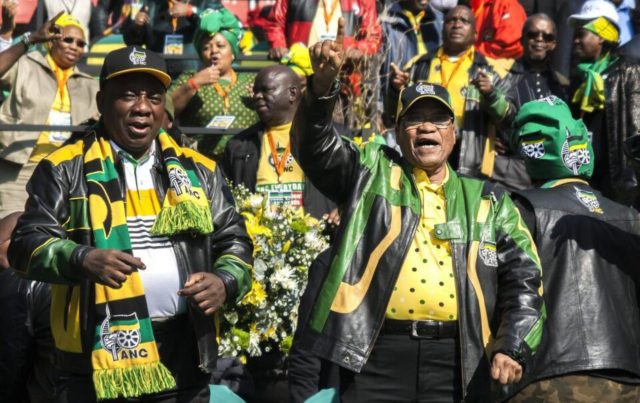Despite an emphasis on anti-corruption efforts focusing on the Presidency, more than half of South Africans believe that “most” or “all” officials in the Presidency were involved in corruption.
WHILE President Cyril Ramaphosa has positioned himself as an anti-corruption leader, a recent survey found that South Africans perceived corruption as increasing during his tenure – even in the Office of the Presidency itself.
The survey found that most citizens were dissatisfied with the way the government handled its fight against corruption, suggesting that the national anti-corruption strategy and other efforts to strengthen independent oversight have not yet had their desired impact.
Despite an emphasis on anti-corruption efforts focusing on the Presidency, more than half (53%) of South Africans believe that “most” or “all” officials in the Presidency were involved in corruption.
It also found that a growing number of people feared retaliation if they reported corruption to the authorities.
The survey further found there was a widespread belief that people who break the law – and especially officials who break the law – often go unpunished.
The survey was conducted by Afrobarometer released by the Institute for Justice and Reconciliation this week.
Based on its findings, the institute said these public perceptions undermined trust in state institutions. It said that progress in the anti-corruption fight would require political will, more assertive independent oversight, and safe reporting channels for both whistle-blowers and ordinary citizens.
“Without these, it appears that South Africans will remain unconvinced that change has come,” the institute reported.
Some of the key findings include:
– Sixty-four percent of South Africans said that corruption increased in the past year, including 49% who believe it increased “a lot”.
– State institutions are widely seen as corrupt. 56% of citizens said “most” or “all” police officials are involved in corruption and 53% said officials in the president’s office were involved in the same.
– Seven in 10 South Africans said the government is performing “fairly badly” or “very badly” in the fight against corruption.
– Among citizens who interacted with key public services during the past year, 24% said they had to pay a bribe to avoid a problem with the police, 21% paid a bribe to obtain a government document while 15% paid a bribe to acquire police assistance. 10% said they paid a bribe for public school services and 8% said they paid a bribe for medical care.
– Three out of four South Africans (76%) said they feared risk retaliation or other negative consequences if they reported incidents of corruption.
– Seven in 10 citizens (71%) believed that officials who break the law “often” or “always” go unpunished
The survey found that in 2018, President Ramaphosa’s promises to restore government integrity, strengthen democratic institutions, and fast-track development gave South Africans a renewed sense of hope.
Transparency International’s most recent corruption perceptions index scored South Africa at 44 out of 100 points, which was just a 1-point improvement from 2017.
In 2020, the government was accused of misappropriating Covid-19 relief funds. Evidence of irregularities in the awarding of tenders related to Covid-19 response efforts had engulfed the Department of Health in a scandal that led to the resignation of Minister of Health Zweli Mkhize hours before a cabinet reshuffle.
Corruption again made the news with the recent murder of a whistle-blower in the Gauteng Health Department, Babita Deokaran.
“Not only do South Africans believe that corruption is getting worse, but they also see large portions of elected officials and civil servants as involved in corrupt activities. Society says the government is handling the anti-corruption fight badly, while channels to report corruption are increasingly seen as unsafe,” the survey found.








